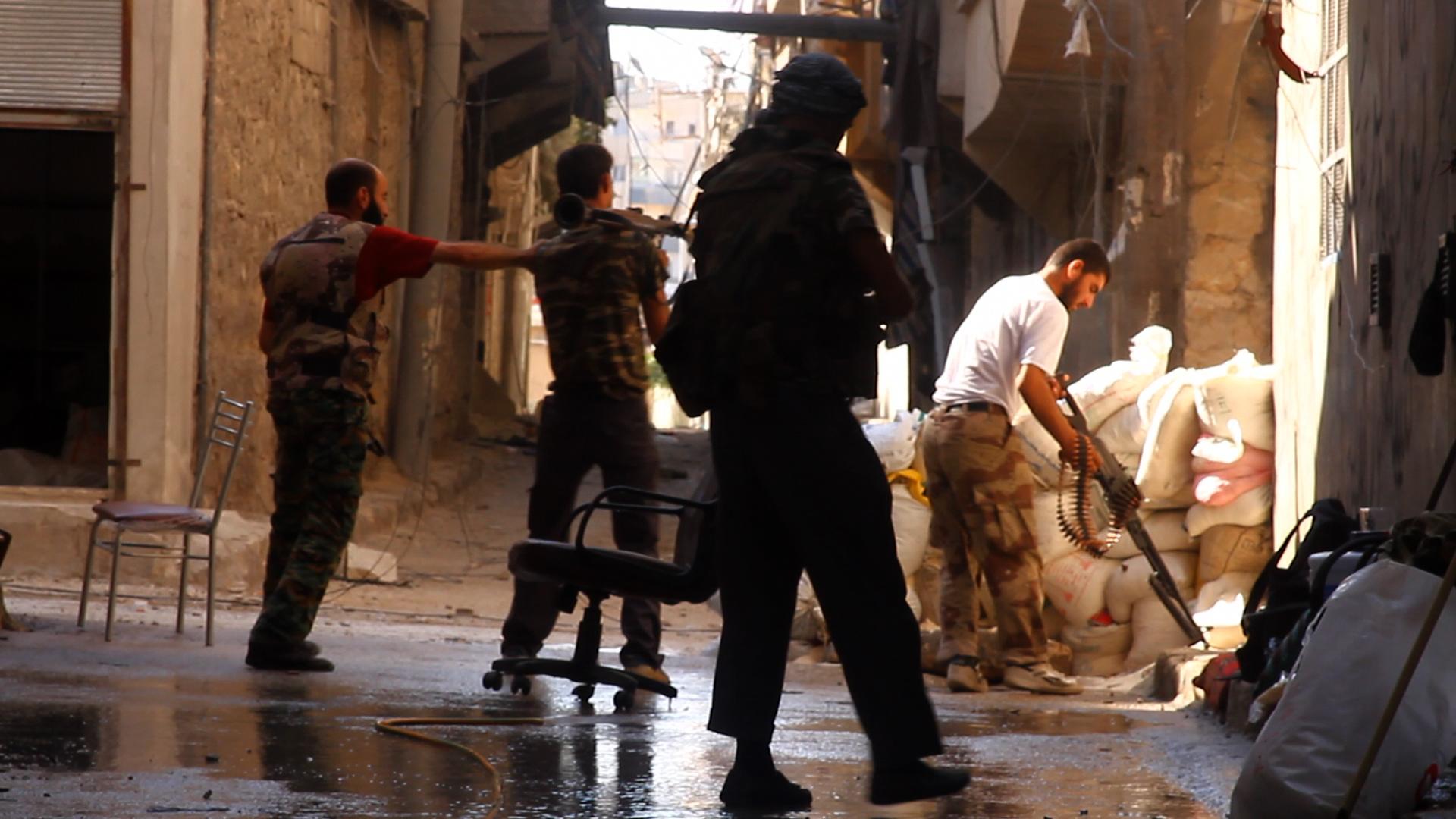Three years of conflict in Syria
A call comes through that a tank was spotted nearby. The men grab their weapons.
Today is Day 1,097 of the Syria conflict.
On March 18, 2011, Syrian security forces opened fire on protesters in Daraa. These were the first deaths of a conflict that today reaches its three-year anniversary. What started out as protests degenerated into civil war, and what started as civil war has now expanded into a cross-border, sectarian struggle. Lebanon's Hezbollah movement has sided with Syrian President Bashar al-Assad. Anti-government militants in Iraq have sided with the Syrian rebels. And as arms and militants flow over the border into Syria, not just refugees but also retaliatory attacks increasingly spill over into these other countries — just yesterday Tracey Shelton reported on the latest repercussions in Lebanon due to Hezbollah's role in the retaking of Yabroud, the last rebel stronghold on the Syrian border.
The mission of this blog, as stated in our sidebar, is to make the Syria conflict as readable as possible. Three years ago, Syria held the world by its eyeballs. Whether on telvision screens, computer screens, or front pages, the events in Damascus, Aleppo, Daraa, and Homs were the news of the day. The stories were too powerful, the stakes too clear, for the ultimate complexity of the conflict to prove a barrier to reader engagement.
But as the death toll rose, as goals grew murkier and both sides' hands grew dirtier, that changed. It's human nature to grow numb, eventually, to a story that offers nothing but bad news. But that trend was compounded, in this case, by the increasing distance even between reporters and the story they were reporting: The unprecedented and unparalleled danger of reporting from Syria — for two years running, more journalists have been killed in Syria than anywhere else in the world, to say nothing of the kidnappings — has forced most organizations, GlobalPost included, to withdraw their reporters to either Lebanon or Turkey. GlobalPost correspondent James Foley has been held captive in Syria for more than 16 months. Last November, the Committee to Protect Journalists estimated that at least 30 local and international journalists were missing within the country.
The premise of this blog is that it matters whether people read about the Syria conflict, because it matters whether people care about the Syria conflict. No publication can make the situation in Syria simple. But we want you to be able to see at a glance, while you are holding your phone on the subway or scanning the headlines at work, what's going on in Syria, today. We'll try not to clutter up your feed — we'll be posting one short, comprehensive update per day, except in cases of monumental breaking news. We also want your suggestions and feedback. We'll be tweeting out the daily update under the #MeanwhileSyria hashtag. Please use that hashtag to tweet at us with suggestions for what to include or thoughts on how the blog is going.
For the three-year anniversary of the conflict we have collected, below, some of our past coverage from the frontlines: a few of the stories that have stayed with us.
The conflict continues.
![]()
We want to hear your feedback so we can keep improving our website, theworld.org. Please fill out this quick survey and let us know your thoughts (your answers will be anonymous). Thanks for your time!
